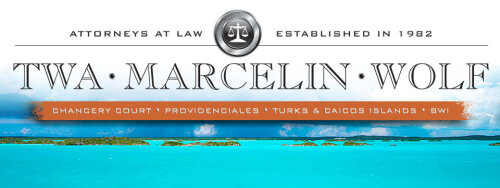Best Due Diligence Lawyers in Turks and Caicos Islands
Share your needs with us, get contacted by law firms.
Free. Takes 2 min.
Or refine your search by selecting a city:
List of the best lawyers in Turks and Caicos Islands
About Due Diligence Law in Turks and Caicos Islands:
Due diligence in the Turks and Caicos Islands refers to the process of investigating and assessing the various aspects of a business or property before entering into a transaction. It is crucial for identifying potential risks and liabilities that may impact the transaction. Due diligence can involve legal, financial, and operational aspects of the business or property.
Why You May Need a Lawyer:
You may need a lawyer for due diligence in Turks and Caicos Islands in various situations such as purchasing a property, entering into a business transaction, or conducting a merger or acquisition. A lawyer can help navigate the legal complexities involved in due diligence and ensure that all legal requirements are met.
Local Laws Overview:
Key aspects of local laws relevant to due diligence in Turks and Caicos Islands include property laws, contract laws, and regulatory compliance requirements. It is important to understand these laws to conduct a thorough due diligence process and mitigate any potential legal risks.
Frequently Asked Questions:
1. What is the importance of due diligence in Turks and Caicos Islands?
Due diligence is important to identify potential risks and liabilities before entering into a transaction, ensuring that informed decisions are made.
2. What are the common areas covered in due diligence?
Common areas covered in due diligence include legal, financial, and operational aspects of a business or property.
3. How can a lawyer help with due diligence?
A lawyer can provide legal expertise, review contracts and documents, conduct legal research, and ensure compliance with local laws.
4. What are the potential legal risks of not conducting due diligence?
The potential legal risks of not conducting due diligence include exposure to undisclosed liabilities, contractual breaches, and legal disputes.
5. How long does due diligence typically take in Turks and Caicos Islands?
The timeframe for due diligence can vary depending on the complexity of the transaction and the amount of information to review.
6. What are the costs associated with due diligence in Turks and Caicos Islands?
The costs of due diligence can vary depending on the scope of the investigation, but it is important to consider it as an investment in risk mitigation.
7. Can due diligence be conducted by non-lawyers?
While some aspects of due diligence can be conducted by non-lawyers, it is advisable to seek legal advice to ensure compliance with local laws and regulations.
8. What should I look for when hiring a lawyer for due diligence?
You should look for a lawyer with experience in due diligence, knowledge of local laws, and a track record of successful transactions.
9. What happens if legal issues are discovered during due diligence?
If legal issues are discovered during due diligence, your lawyer can help assess the risks and negotiate solutions to mitigate the impact on the transaction.
10. How can I ensure confidentiality during the due diligence process?
You can ensure confidentiality during the due diligence process by signing confidentiality agreements with all parties involved and limiting access to sensitive information.
Additional Resources:
For additional resources on due diligence in Turks and Caicos Islands, you can contact the Turks and Caicos Islands Bar Association or seek guidance from the Financial Services Commission.
Next Steps:
If you require legal assistance with due diligence in Turks and Caicos Islands, it is recommended to consult with a qualified lawyer who can provide guidance tailored to your specific situation. A lawyer can help navigate the legal complexities involved in due diligence and ensure that your interests are protected throughout the process.
Lawzana helps you find the best lawyers and law firms in Turks and Caicos Islands through a curated and pre-screened list of qualified legal professionals. Our platform offers rankings and detailed profiles of attorneys and law firms, allowing you to compare based on practice areas, including Due Diligence, experience, and client feedback.
Each profile includes a description of the firm's areas of practice, client reviews, team members and partners, year of establishment, spoken languages, office locations, contact information, social media presence, and any published articles or resources. Most firms on our platform speak English and are experienced in both local and international legal matters.
Get a quote from top-rated law firms in Turks and Caicos Islands — quickly, securely, and without unnecessary hassle.
Disclaimer:
The information provided on this page is for general informational purposes only and does not constitute legal advice. While we strive to ensure the accuracy and relevance of the content, legal information may change over time, and interpretations of the law can vary. You should always consult with a qualified legal professional for advice specific to your situation.
We disclaim all liability for actions taken or not taken based on the content of this page. If you believe any information is incorrect or outdated, please contact us, and we will review and update it where appropriate.
Browse due diligence law firms by city in Turks and Caicos Islands
Refine your search by selecting a city.














